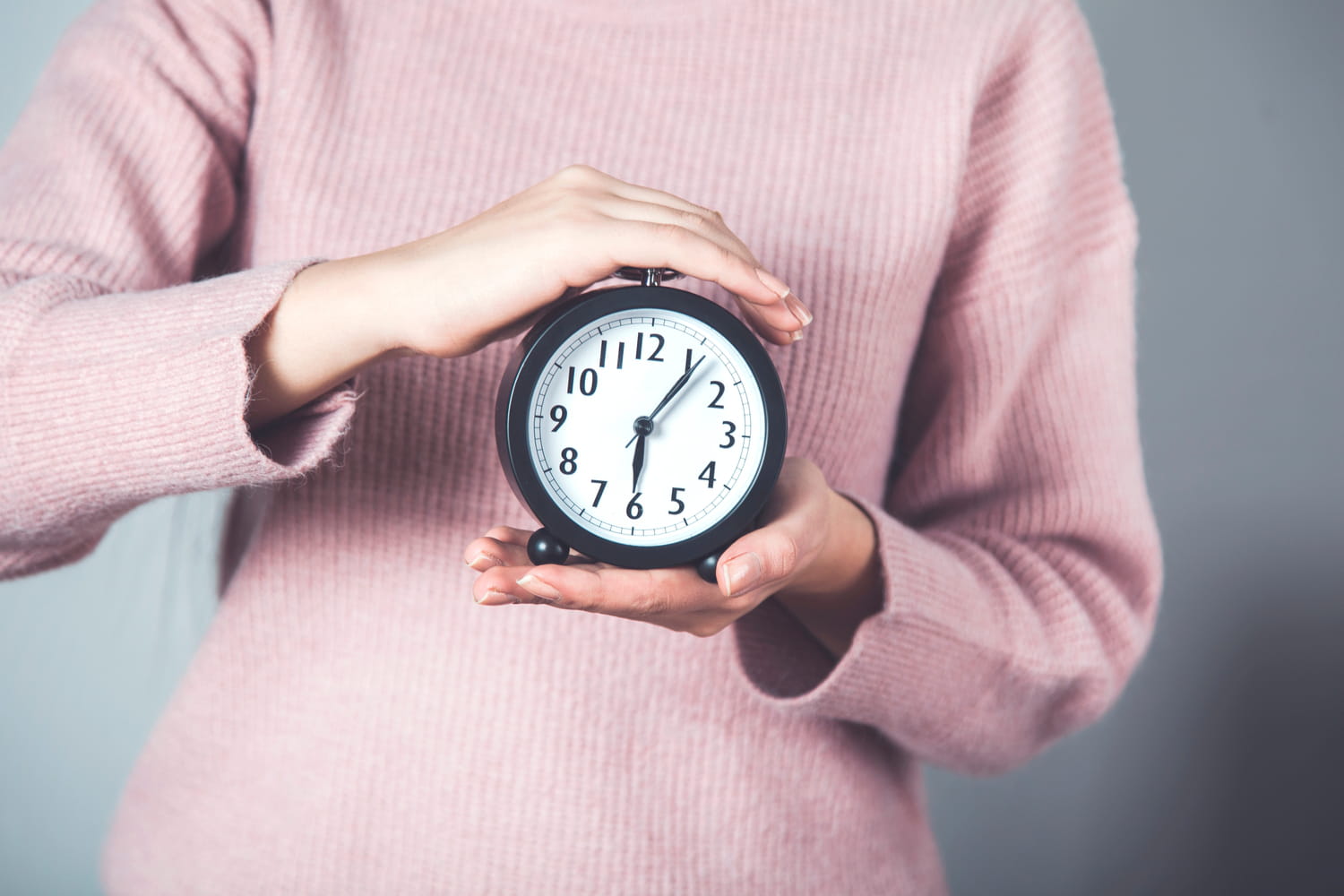With the change to winter time, we can sleep an hour longer! What are the consequences for fatigue? Taking the pill? Advice from Dr Catherine Lamblin, sleep doctor in Lille.
Shorter days, reduced light, disturbed sleep… The transition towinter time which takes place this year from October 25 to 26, shakes up the organization a little. If we gain an hour of sleep (at 3 a.m., it’s 2 o’clock in the morning.), on the other hand we lose an hour of sunshine and natural light in the evenings. In addition to the joy of cocooning for an extra hour under the duvet, you have to think about quickly adjusting yourself to face the blues of Monday because at 5:30 p.m., it’s now dark! Our advice.
What are the consequences on the body?
The body is regulated to a rhythm called “nycthemeral” which refers to a 24-hour cycle, consisting of a day period and a night period. During these 24 hours, different hormones are secreted in the body. “And in particular melatonin (sleep hormone) whose secretion is maximal at the time of falling asleep, generally between 10 and 11 p.m., and which will be exhausted during the night so that the body can gradually wake up. Then, another hormone takes over, it is the cortisolwhich conversely, is secreted when we wake upexplains Dr Catherine Lamblin, sleep doctor at the La Louvière private hospital in Lille. But when we change time arbitrarily, as is the case when we switch to winter time, the hormones will take a few days to settle into this new rhythm.”
In 2-3 days, the body normally begins to get used to the new time.
“Melatonin is generally secreted in the dark, when we perceive less and less daylight. When we switch to winter time, we perceive the night earlier, our melatonin will be secreted earlier and we will want to sleep sooner The evening. On the other hand, we will normally have a little easier getting up in the morningspecifies our interlocutor. In 2-3 days, the body normally begins to get used to the new time“. The change to winter time is also much easier to absorb than the change to summer time.since it allows you to sleep an hour more and corresponds better to our natural sleep/wake rhythm.
A few days before the time change, it is advisable to go to bed slightly later than usual -about twenty minutes- in order to gradually shift and adapt to the new day/night cycle. “The key message is to not arriving at the time change with a sleep deficit or irregular sleep hours. To adapt well to the new time, the body must not be deprived of sleep“, recommends the specialist.
► Listen to yourself. The day after the time change, “it is better listen to our body and go to bed when we feel tiredeven if it is not always easy with professional or family constraints“, recognizes Dr. Lamblin.
|
► The changeover to winter time takes place in OCTOBER, so we go BACK one hour. ►The changeover to summer time takes place around the month ofA.V.ril, we A.V.ance therefore of one hour. |
|---|
► Avoid exposing yourself to screens before bed : “Blue light emitted by screens prevents melatonin secretion“, she explains. Above all, an eye that absorbs blue light just before sleeping sends false information to the brain which thinks while it is still in “broad daylight”. Result: falling asleep is delayed, sleep time is shorter and the quality of sleep is altered.
► Avoid eating heavy or too rich at lunchtime because on the one hand it makes digestion more difficult and on the other hand “this can have a soporific effect during the afternoon and disrupt the wake/sleep cycle“.
► Take a quick walk outside at lunchtime to take advantage of daylight and store sunshine: “This allows you to stay awake in the afternoon, to stimulate yourself and to be generally more fit until the end of the day“, indicates the expert.
► Do a light therapy treatment (lamp reproducing natural sunlight) because “in winter, the days get shorter: we are less exposed to natural light and we can easily be deficient in vitamin D”, alerts the specialist. You can find out at a medical center, a wellness center or in certain hospitals which offer light therapy sessions. There are also light therapy devices to install at home (lamp, panels, glasses, etc.). Before embarking on a light therapy session, it is strongly recommended to obtain the advice of a general practitioner, or even an ophthalmologist.
Is there a risk when taking the pill?
Most contraceptive pills (classic combined pills and progestogen pills with desogestrel) allow a taking time of 12 hours (to find out how long it takes, refer to the instructions for your pill). Indeed, “if the tablet was forgotten less than 12 hours ago, contraceptive effectiveness is not reduced“, can we read on the instructions for the pills (excluding levonogestrel microdose pills), which can be consulted on the Public Medicines Database website.
Thanks to Dr Catherine Lamblin, sleep doctor at the La Louvière private hospital in Lille.









